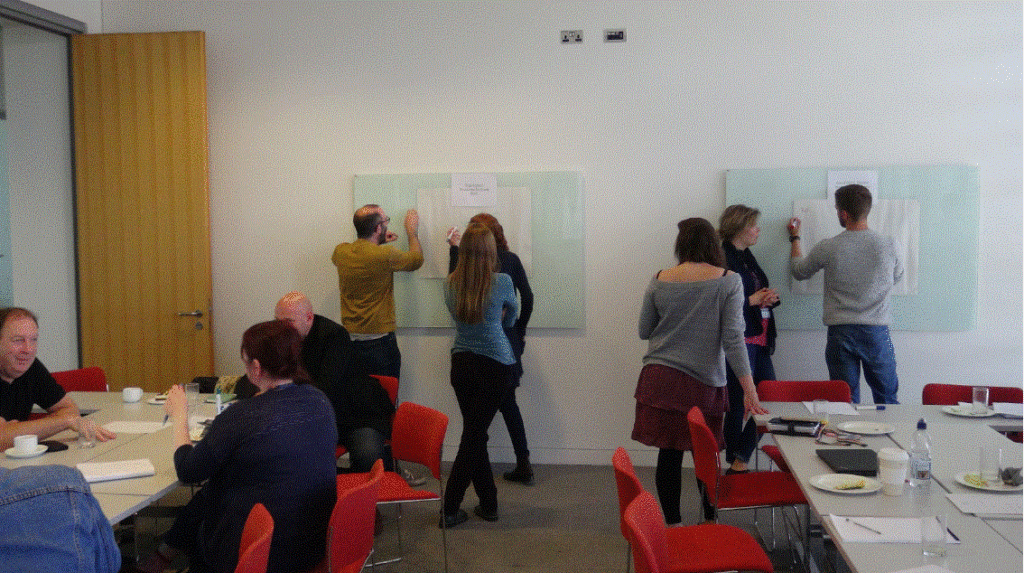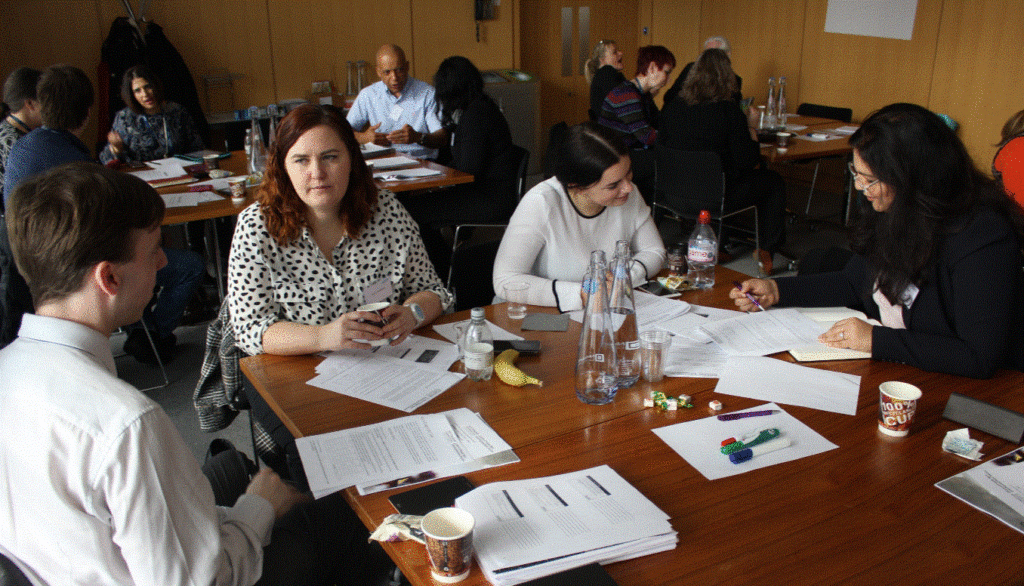The research centre recently held a school-wide forum using the World Café format to bring together the different and diverse research ideas and interests of the staff members. The aim of the forum was to determine where researchers whose research didn’t quite match the centre’s main groups could fit in and perhaps establish a new research group, so that that centre would be better able to provide assistance where possible. An additional aim was to raise awareness about the type of research that is going on in the school so that individuals with similar research interests would have opportunities to collaborate.

Some of the main research themes which were topics of discussion included employee engagement and employee voice, HRM and innovation, diversity and inclusion and gender in management, information business employment practices, HRD and leadership development, and good work, decent work, and meaningful work. Researchers whose main interests did not fall into these themes grouped together to discuss how their expertise might be used, such as experimental methods and a taking a more interdisciplinary approach to research collaboration. Overall, we felt that the forum was a success and enabled the centre to establish what other researchers in the school would find most useful in terms of support, including research and funding opportunities, career development, writing and publishing, as well as sharing expertise in methodologies.

